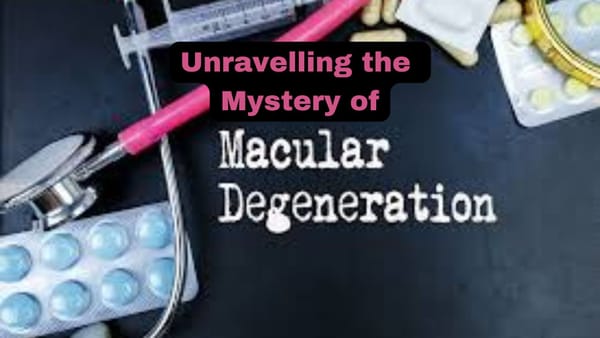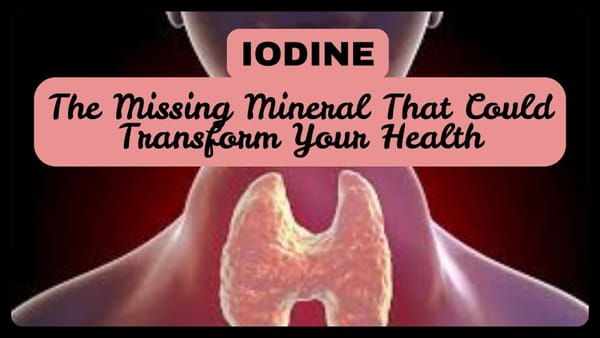Is Your Mouthwash Destroying Your Health? Leading Dentist Reveals Shocking Truth
The bacteria in our mouths directly influence our overall health. By disrupting this ecosystem with harsh oral care products we harm our immune system, cardiovascular and brain function.
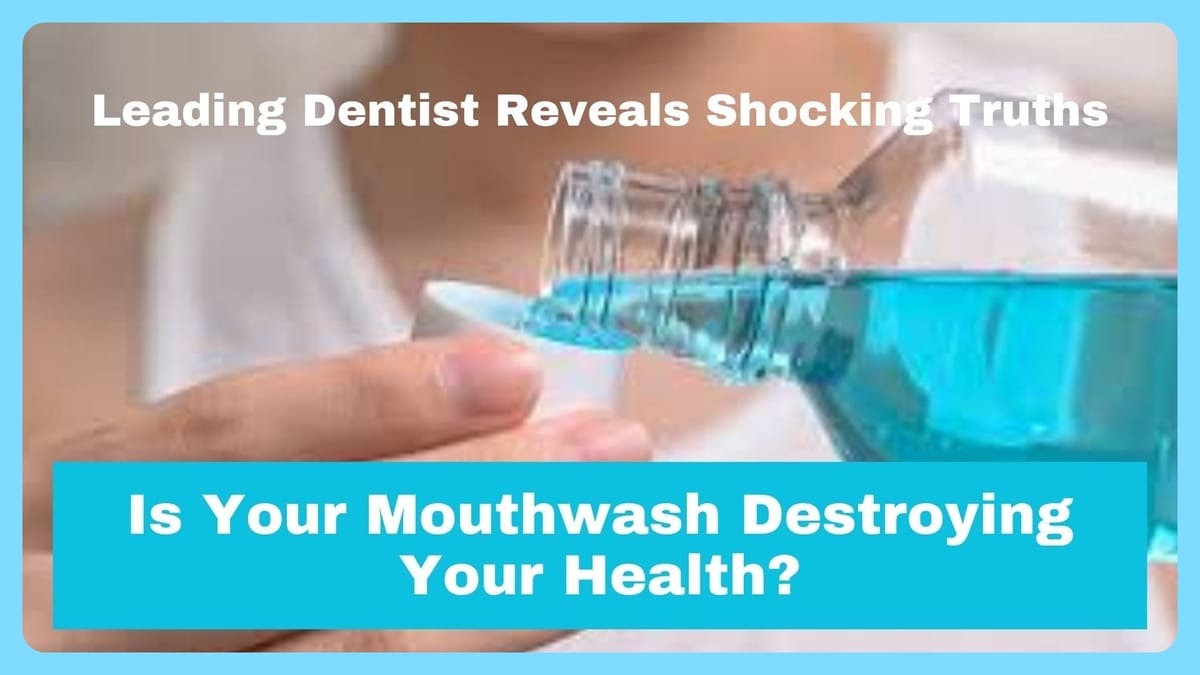
In an age where we're constantly discovering new links between different aspects of our health, Dr Mark Burhenne, a functional dentist with vast experience, has emerged as a pioneering voice in revolutionizing our understanding of oral health. Gone are the days when we viewed our mouth as an isolated system – today's science reveals a fascinating web of connections between our oral health and overall well-being. Join me to explore these groundbreaking insights that reshape how we think about dental care.
The Hidden Gateway: Your Mouth's Critical Role in Total Body Health
Traditional dentistry has long focused on treating symptoms – cavities, gum disease, and bad breath. Dr Burhenne reveals a more profound truth: your mouth is the gateway to your entire body's health. The oral microbiome, home to billions of bacteria, isn't just about fresh breath, it's the beginning of your gut microbiome which plays a crucial role in your immune system, cardiovascular health, and brain function.
Understanding the Oral-Gut Axis
Recent studies show that the bacteria in your mouth directly influence your gut health. When we disrupt this delicate ecosystem with harsh oral care products we do more harm than good. Dr. Burhenne emphasizes that maintaining a healthy oral microbiome is as crucial as caring for your gut microbiome – they're two parts of the same system.
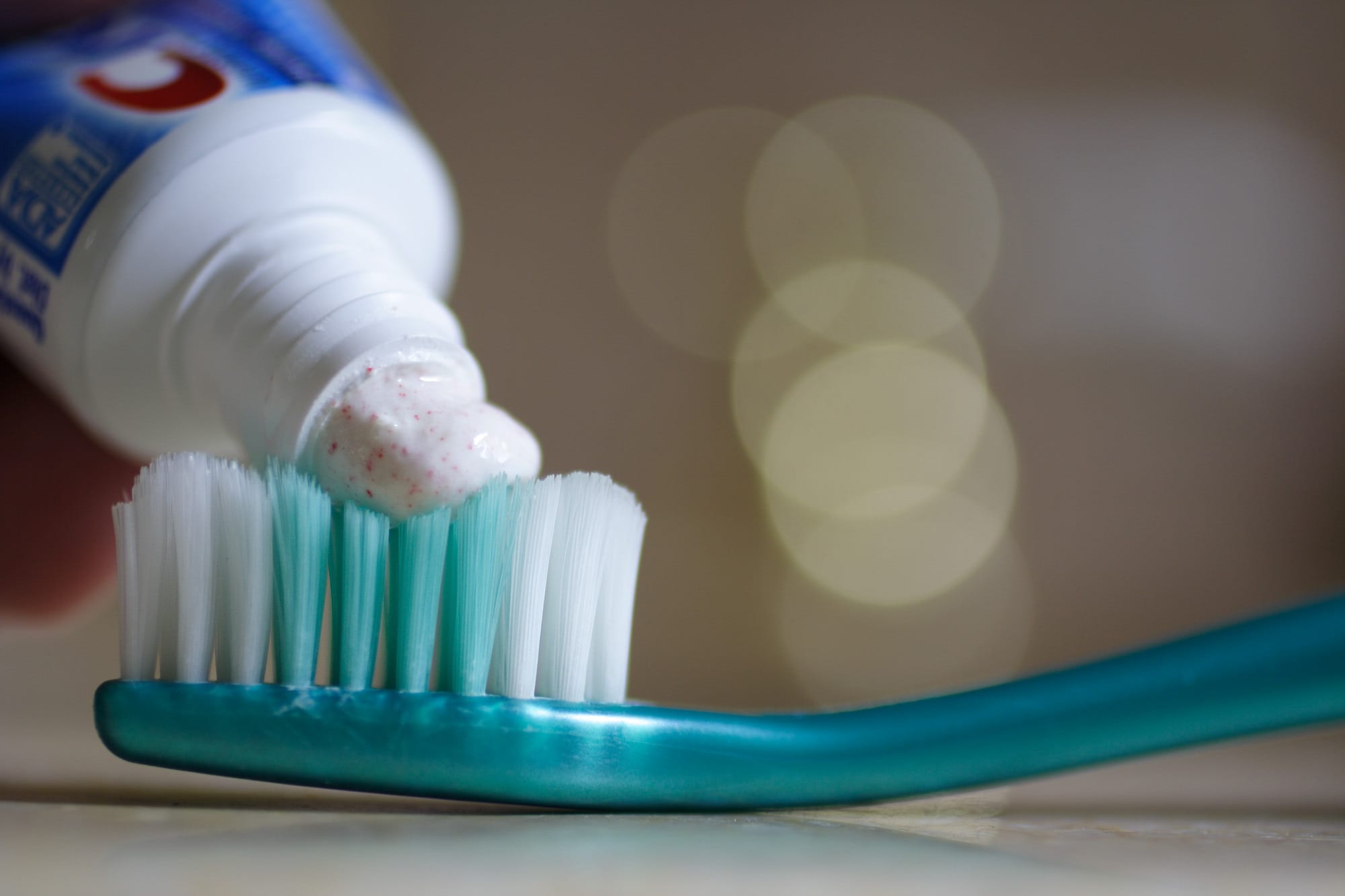
Modern Oral Care: Gentler, Smarter, More Effective
The Truth About Brushing: Less is More
Contrary to popular belief, aggressive brushing isn't better. Dr. Burhenne advocates for a gentler approach:
- Use soft-bristled brushes exclusively
- Brush at a 45-degree angle to the gum line
- Apply light pressure – enough to bend bristles slightly
- Focus on technique rather than force
Flossing Reimagined
While flossing remains important, the traditional approach might need updating. Dr. Burhenne suggests:
- Water flossers as an effective alternative
- Interdental brushes for larger spaces
- Proper flossing technique: Create a C-shape around each tooth
- Floss before brushing to loosen debris
The Mouthwash Myth: Why Fresh Breath Might Come at a Cost
One of Dr. Burhenne's most controversial positions challenges our reliance on antiseptic mouthwash. Here's why:
- Most commercial mouthwashes kill both harmful and beneficial bacteria
- This disruption can lead to worse breath long-term
- Alcohol-based mouthwashes may dry out the mouth, reducing natural protection
- Alternative solutions include saltwater rinses and oil-pulling
What is oil pulling?
To oil pull, you swish oil in your mouth as a replacement for mouthwash.
Oil pulling can reduce pathogenic bacteria that cause cavities and gum disease, in the mouth. Scientific studies show it also reduces gum inflammation, among other benefits.
Traditional Ayurvedic oil pulling, known as “kavala” or “gundusha,” involves swishing for a prolonged period, typically 5-20 minutes, preferably on an empty stomach. But 1-3 minutes of oil pulling is plenty to support a healthy mouth!
Although oil pulling has been around for the last 3,000 years, it became a major trend in the 1990s after a Russian physician, Dr. F. Karach, wrote about its health-boosting potential.
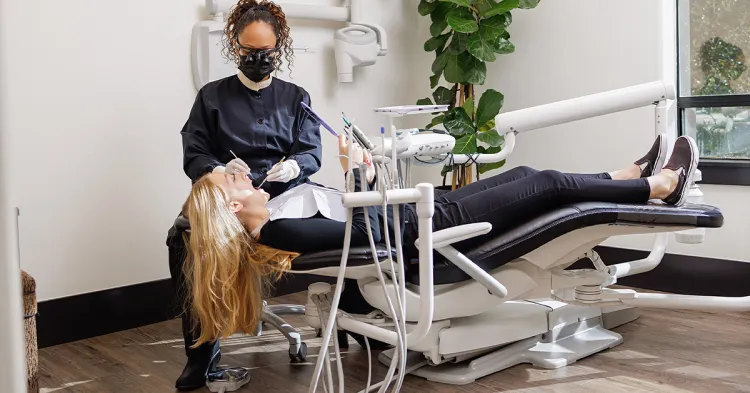
More about oil-pulling from Dr Burhenne
Oil pulling should not be touted as a disease-curing miracle. These claims lack scientific evidence and have never been substantiated.
How to Oil-Pull
- Floss and brush your teeth before you start.
- Place a tablespoon of oil in your mouth.
- Sit upright (don’t lay down) and swish the oil for 1-3 minutes.
- Spit out the oil in the trash can, not a toilet or sink (the oil can clog pipes as it hardens).
- Rinse your mouth.
How often should you oil-pull? If you suffer from gingivitis or gum disease, oil-pull once daily to improve gum health. If you have good oral health, then 1-2 times each week.
Best oil for oil-pulling? Coconut oil is the best for oil pulling due to its anti-inflammatory properties and ability to balance the bacteria in the mouth. However, to receive some benefits choose an oil that is cold-pressed and organic. Coconut oil contains lauric acid, a medium-chain triglyceride (MCT) that is incredibly effective at killing the bad bacteria that can lead to tooth decay. These same compounds may also decrease the plaque that builds up on your teeth, reducing your chance of gum disease.
Oral health benefits of Coconut Oil-pulling? University of Oxford scientists conclude that oil pulling is cost-effective and “may have beneficial effects on dental hygiene.”
It supports a healthy oral microbiome — the immune system for your mouth — and may help reduce your risk of oral problems.
Other benefits of oil-pulling?
- When your gums become swollen, inflamed, and tender, it may be a sign you have gingivitis. Untreated gingivitis can eventually lead to major oral health issues like periodontitis. The good news is that oil pulling reduces gingivitis-causing plaque as the oil acts as an emollient. Essentially, it acts a little like soap, cleaning the teeth and gums from unwanted buildup.
- Four clinical trials have analyzed the effect of oil pulling on the plaque known to cause gingivitis. All four found statistically significant improvements in plaque after oil pulling (typically for 2-4 weeks, depending on the study). These studies were all short-term, observing plaque build-up. No research has been conducted on long-term oil pulling and gingivitis risk. One of the studies even recorded a small increase in the benefits of oil pulling over chlorhexidine, the main ingredient in traditional mouthwashes.
- Oil pulling may help remineralize teeth by supporting a balance of good-to-bad bacteria in the mouth, and play a part in reversing cavities naturally.
- This effect only seems to occur after at least three weeks - just one reason coconut oil pulling should be used as a long-term dental health solution, not as a quick fix.
- Coconut oil also has antifungal properties, so it helps to kill Candida living in the mouth. A review of current research found that coconut oil is a cost-effective and easy way to reduce oral thrush symptoms. When Candida yeast proliferates in the mouth, it can lead to an infection known as oral thrush.
Oral thrush is more common in people with the following:
- dentures
- undergoing chemotherapy or radiation
- using inhalers for asthma
- taking medication that alters the microbiome (including antibiotics and steroids).
- Oil-pulling can correct bad breath by supporting your saliva’s efforts in disorganizing bacteria without killing the good bacteria and drying your mouth out. At least three clinical trials found that regular oil pulling can kill the bacteria responsible for halitosis. Unlike mouthwash, which dries out the mouth and worsens bad breath, oil pulling supports a healthy oral microbiome.
Coconut Oil Pulling Dangers & Precautions
Oil pulling is a relatively safe and simple process with no known side effects. However, keep in mind these potential risks:
- If you choke on oil while pulling, the fat can, in rare cases, cause lipid pneumonia. This is rare but is the major reason small children should not oil pull.
- If you’re allergic to coconut products, you should not practice oil pulling with coconut oil.
- Swallowing the oil after pulling will not cause you to swallow toxins from your bloodstream, but it can upset your stomach. Spit it out, never swallow.
- Oil pulling is not a substitute for brushing and flossing your teeth. Continue your dental care routine and add oil pulling, if you want to try it out, but don’t stop brushing.
The American Dental Association does not recommend oil pulling due to a lack of “reliable studies” to show that it improves oral health or acts as a preventative measure for oral disease.
However, members of other reputable associations, like the International Academy of Oral Medicine & Toxicology (IAOMT), regularly encourage this practice.
Natural Alternatives for Fresh Breath
Instead of harsh mouthwashes, consider:
- Regular tongue scraping
- Probiotic supplements
- Hydration
- Essential oil-based natural rinses
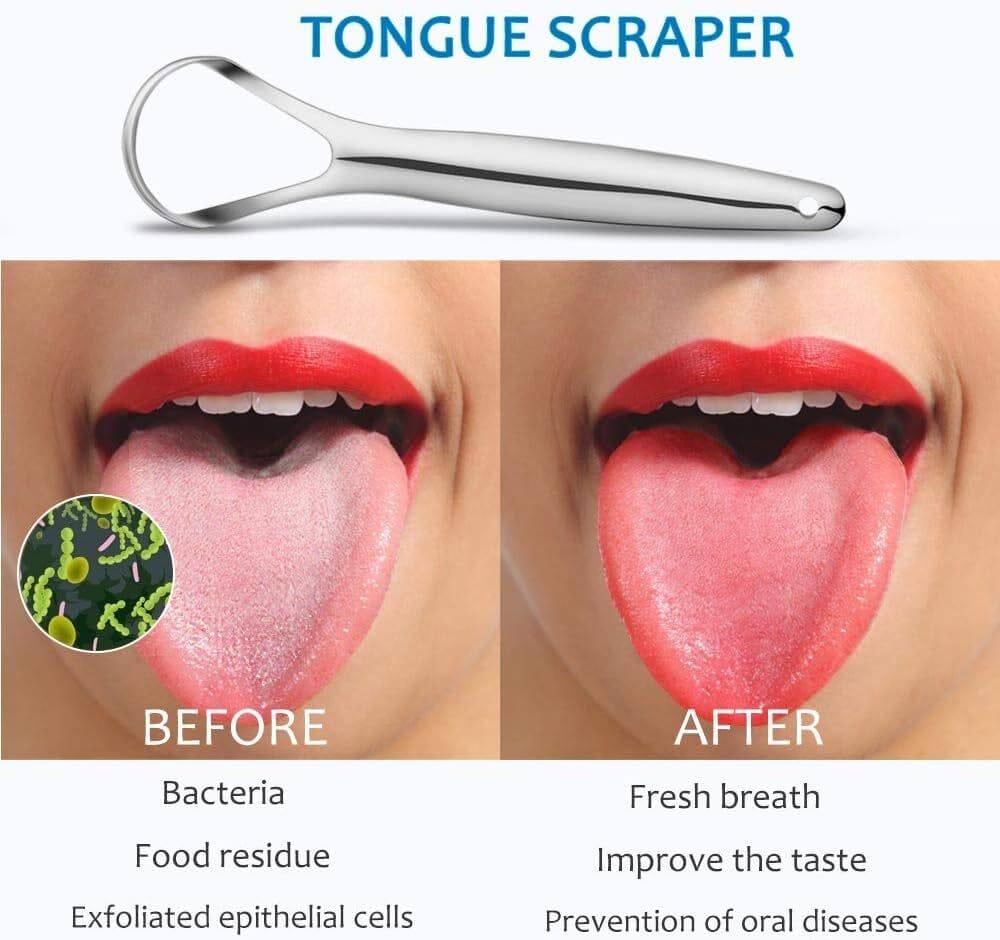
The Ancient Practice Making a Modern Comeback: Tongue Scraping
Tongue scraping, an Ayurvedic practice thousands of years old, is gaining new respect in modern dentistry. Dr. Burhenne considers it essential for:
- Removing bacteria that cause bad breath
- Improving taste sensation
- Promoting better digestion
- Supporting overall oral microbiome health
Nutrition: The Foundation of Dental Health
Foods That Build Better Teeth
Your diet affects your oral health more than you might think. Dr. Burhenne recommends:
- Vitamin K2-rich foods (grass-fed dairy, fermented vegetables)
- Mineral-dense foods (leafy greens, bone broth)
- Probiotic-rich foods (kefir, kombucha)
- Foods high in Coenzyme Q10 (organ meats, fatty fish)

The Critical Role of Hydration
Proper hydration isn't just about drinking water – it's about maintaining healthy saliva production.
Saliva:
- contains natural antibacterial compounds
- helps mineralize teeth
- maintains proper pH balance
- supports healthy bacterial communities
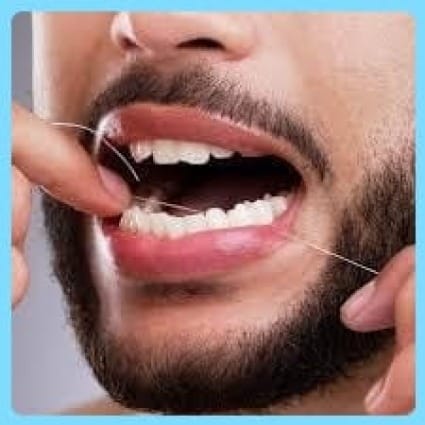
The Future of Dentistry: Functional Approaches
Dr. Burhenne champions functional dentistry, which:
- Focuses on prevention rather than treatment
- Considers the whole body when addressing oral health
- Uses biocompatible materials
- Emphasizes personalized care based on individual microbiome composition
Rethinking Common Practices - Fluoride Use
Fluoride has long been controversial, particularly among traditional dentists, while functional dentists have discouraged its use for many years. The debate has intensified with a recent ruling by a Federal Court in California. If you would like to listen to a recent podcast in which Dr Burhenne joins Dhru Purohit to break down the science of fluoride levels in drinking water and its impact on the population, more specifically on the brains of children. https://www.youtube.com/watch?v=e1TkUFxEe0M
While acknowledging fluoride's benefits, on his website Dr. Burhenne suggests:
- Individual assessment of fluoride needs
- Consideration of total fluoride exposure
- Alternative remineralization strategies
- Focus on diet and lifestyle factors
X-ray Frequency
Modern approaches recommend:
- Digital X-rays for lower radiation exposure
- Individualized scheduling based on risk factors
- Alternative diagnostic tools when possible
- Prevention-focused care to reduce the need for X-rays
FAQs: Modern Oral Health Insights
Q: How often should I replace my toothbrush? A: Every 3-4 months, or sooner if bristles are frayed. Consider using an ultrasoft brush for optimal gum health.
Q: Is bleeding while flossing normal? A: No. Bleeding gums indicate inflammation and should be addressed through improved oral hygiene and possibly dietary changes.
Q: Can oral health affect heart disease? A: Yes. Research shows strong links between gum disease and cardiovascular health, highlighting the importance of good oral hygiene.
Taking Action: Your Path to Better Oral Health
Understanding these new perspectives is just the first step. To implement Dr. Burhenne's approach:
- Evaluate your current oral care routine
- Gradually introduce gentler, more natural practices
- Focus on supporting your oral microbiome
- Consider consulting a functional dentist
- Pay attention to the mouth-body connection
Remember, optimal oral health isn't just about having a bright smile – it's about supporting your entire body's well-being. By adopting these modern approaches, you're investing in your future overall health.
For more information, visit Dr. Burhenne's website askthendentist.com or consult a functional dentistry practitioner in your area.





